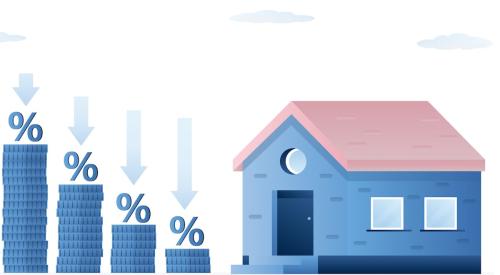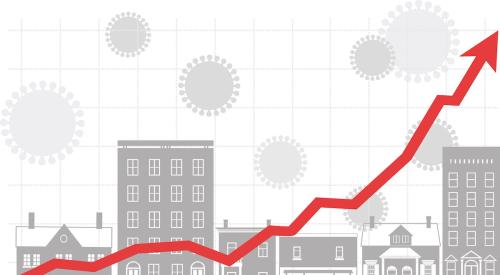Anxieties over the rising COVID-19 delta variant caused the stock market to go red yesterday, and it could begin to affect homebuyers. Experts call Dow Jones’ 600 point drop on Monday a “significant” decline. If the decline continues, it will disrupt a once smooth economic recovery and has a chance at bringing mortgage rates back down, says Realtor.com. With lower mortgage rates comes another wave of intense competition as the housing market still struggles with record low inventory. And although the stock market has little to no daily affect on the housing market, stock market struggles could affect the upper end of the housing market.
Even middle-class buyers may be counting on selling stock to come up with a down payment. If folks are worried about their portfolios or their investments are dwindling, they’re less likely to buy.
“A slowing stock market puts people on edge, and it makes them nervous about what’s around the corner for the economy,” says Wolf. “That kind of uncertainty can cause buyers to pause or sit on the sidelines.”
If fewer people are buying, the housing frenzy could die down, taking “some of the wind out of the sails of the housing market,” says Realtor.com® Chief Economist Danielle Hale.
Why a stock market drop could lead to lower mortgage rates
There’s no simple explanation why changes in the stock market lead to changes in mortgage rates.
Basically, when investors get spooked, they tend to pull money out of the more volatile stock market and put it in boring, but more stable, bonds offering lower returns. They also often look to mortgage-backed securities, aka mortgage bonds. When more folks are buying up bonds, prices go up.
When lenders make a mortgage, they typically don’t want to keep it on their books because that means less money is available to make new loans. So they sell the loans, which are are bundled together into securities, in the secondary market.













